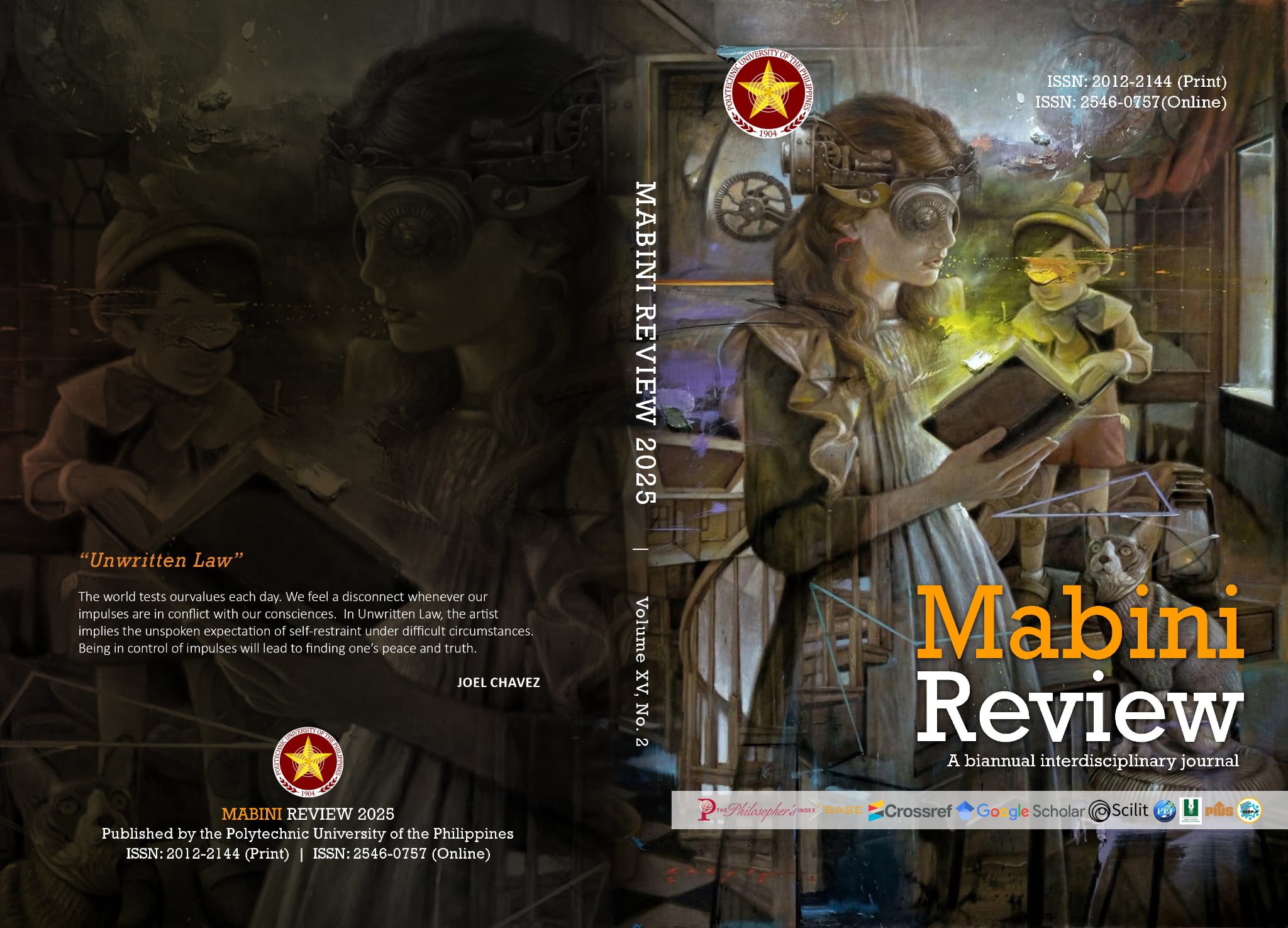Rosas sa Pampang, Bayan sa Dagat: Eko-salin ng mga Piling Tulang Arkipelahiko ni José Martí mula sa Versos Libres (1913) (Roses on the Shore, Nation at Sea: An Eco-Translation of Selected Archipelagic Poems by José Martí from Versos Libres (1913))
DOI:
https://doi.org/10.70922/xpmfjk39Keywords:
archipelago, eco-translation, indirect translation, José Martí, literary relations between Cuba and the PhilippinesAbstract
Sinusuri at isinasalin ng papel na ito ang limang tulang arkipelahiko ni José Martí gamit ang mga lapit ng di-tuwirang pagsasalin at eko-pagsasalin. Sa pamamagitan ng mga piling akda mula sa koleksiyong Versos Libres (1913), inilulugar ang panulaan ni Martí sa interkolonyal na ugnayan ng Cuba at Pilipinas, dalawang bansang kapwa dumaan sa magkatulad na karanasang kolonyal at may matibay na tradisyon ng anti-imperyalistang pakikibaka. Bilang makata at rebolusyonaryo, malaki ang naging papel ni Martí sa pagpapalaya ng Cuba mula sa imperyong Espanyol. Napili at isinalin ang kaniyang mga tulang “Midnight” (“Hatinggabi”), “Famous Island” (“Tanyag na Isla”), “Like Palm Trees Born in the Sand” (“Tulad ng mga Palmang Sumibol sa Buhangin”), “I Hate the Sea” (“Namumuhi Ako sa Dagat”), at “Sad Sunday” (“Malungkot na Linggo”). Hindi lamang naglalaman ng mga imaheng pandagat at pangkapuluan ang mga obrang ito kundi nagbubukas din ng alternatibong pag-unawa sa mga ugnayan ng tao, iba pang buhay na nilalang, at daigdig. Pinanatili sa mga saling-tula ang yaman ng tekstura ng wikang Filipino, lalo na ang daloy at pahiwatig ng mga tula. Higit pa rito, sa diwa ng eko-pagsasalin, lumilitaw ang masalimuot na relasyon ng mga persona ng tula sa kanilang ekolohikal at panlipunang kapaligiran, kung saan ang kalikasan ay hindi lamang tagpuan kundi aktibong bahagi ng diskursong antikolonyal. Itinataguyod din ng papel ang potensiyal ng arkipelahikong pagsasalin bilang paglalayag sa gitna ng marami, magkakaiba, ngunit magkakaugnay na mga wika.
(This paper examines and translates five archipelagic poems by José Martí using the approaches of indirect translation and eco-translation. Through selected works from the collection Versos Libres (1913), Martí’s poetry is situated within the intercolonial relations between Cuba and the Philippines—two nations that underwent similar colonial experiences and share a strong tradition of anti-imperialist struggle. As a poet and revolutionary, Martí played a crucial role in Cuba’s liberation from the Spanish Empire. The selected and translated poems tulang “Midnight” (“Hatinggabi”), “Famous Island” (“Tanyag na Isla”), “Like Palm Trees Born in the Sand” (“Tulad ng mga Palmang Sumibol sa Buhangin”), “I Hate the Sea” (“Namumuhi Ako sa Dagat”), at “Sad Sunday” (“Malungkot na Linggo”). These works not only contain maritime and archipelagic imagery but also open alternative ways of understanding the relationships between humans, other living beings, and the world. The translated poems preserve the richness of the Filipino language’s texture, particularly the flow and nuances of the poems. Furthermore, in the spirit of eco-translation, the complex relationship between the poems’ personae and their ecological and social environments emerges, where nature is not merely a backdrop but an active participant in the anti-colonial discourse. This paper also advocates for the potential of archipelagic translation as a form of navigation across multiple, diverse, yet interconnected languages.)
Downloads
References
Downloads
Published
Issue
Section
License
Copyright (c) 2025 Jose Monfred C. Sy (Author)

This work is licensed under a Creative Commons Attribution-NonCommercial 4.0 International License.
Articles published in the MABINI REVIEW will be Open-Access articles distributed under the terms and conditions of the Creative Commons Attribution-Noncommercial 4.0 International (CC BY-NC 4.0). This allows for immediate free access to the work and permits any user to read, download, copy, distribute, print, search, or link to the full texts of articles, crawl them for indexing, pass them as data to software, or use them for any other lawful purpose.


